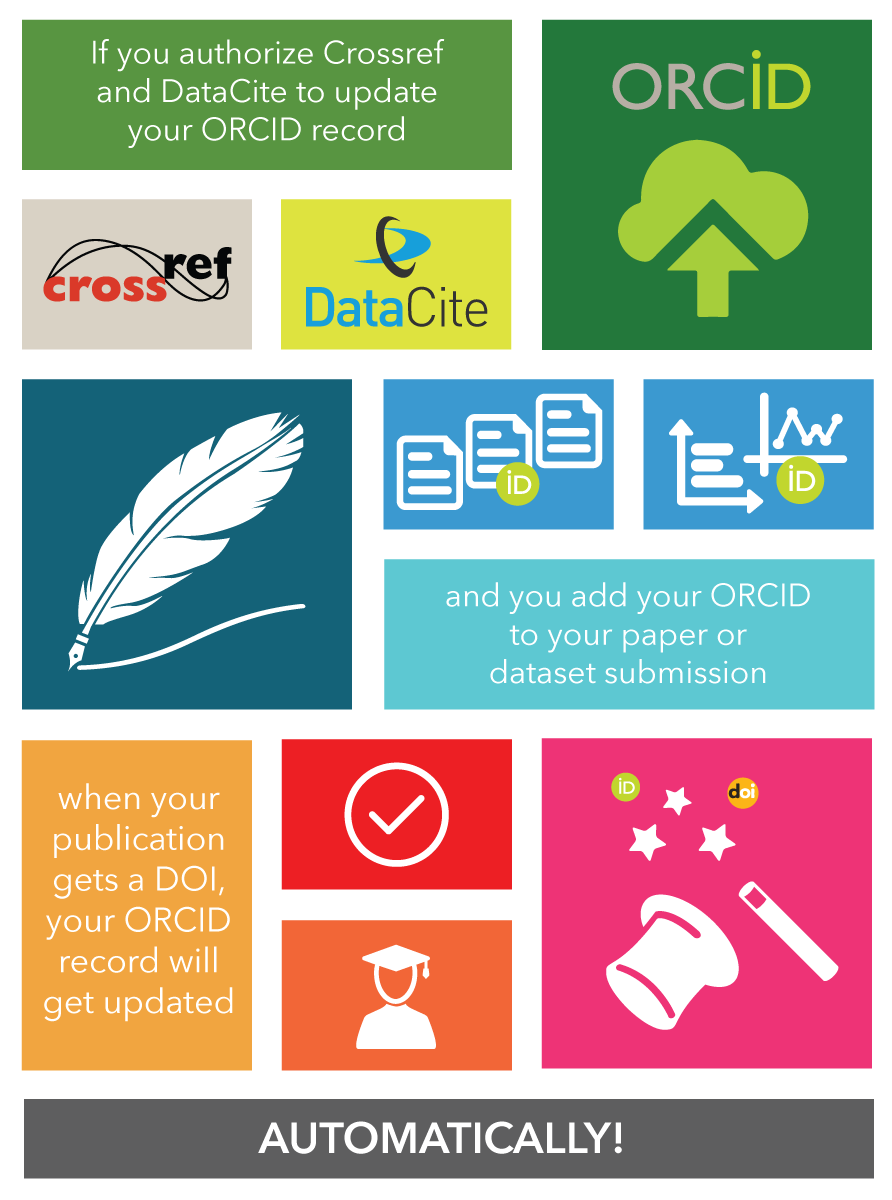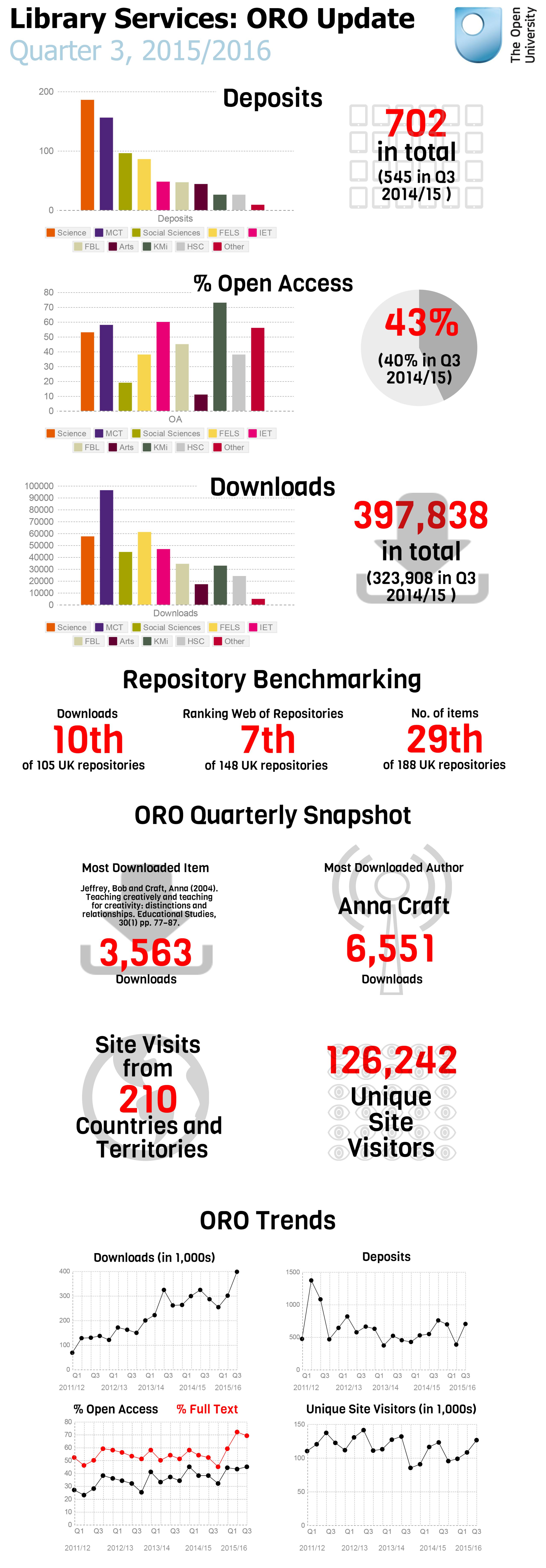Yesterday Jisc organised an event on Cultivating ORCIDs in Birmingham.
In Brum for @jisc @ORCID_Org event pic.twitter.com/IfnSiqyRKF
— Chris Biggs (@seabee73) May 25, 2016
The OU is part of the Jisc ORCID consortia and we are busy integrating ORCIDs into the Institutional Repository, ORO, and plan to promote both ORCIDs and the ORCID/ORO integration in July.
The event was about sharing experiences of institutional ORCID roll out and information gathering on the part of Jisc. Key take outs for me:
- ORCIDs recognise peer review – if your peer review is verified by a service like Publons – then it can be added to your ORCID record.
- RCUK have joined the ORCID consortia and have integrated ORCIDS in to Je-S. Integration is only limited as there will be a replacement for Je-S in the next 2 years. However, RCUK do intend to push Grant information to the researchers ORCID record in the future. Importantly, RCUK are not mandating ORCIDs in bid submissions.
- DOIs minted by CrossRef or DataCite that have an associated ORCID ID can be pushed to that ORCID record. This means that both research data and publications with DOIs can be automatically pushed to ORCID records – if you grant CrossRef and DataCite permissions to do so!
- ORCID records are not a profile system. Rather they are hubs of data that allow the flow of bibliographic information from one place to another. For us at the OU we have a clear use case where ORCIDs can help populate ORO – this will save the researcher time and provide the institution with a more complete set of research publications.
And finally, in the light of the Social Sciences Research Network being bough be Elsevier, the Executive Director of ORCID Laure Haak concluded with a robust statement that ORCID would not, and as a 501(c)3 organization legally could not, be purchased by a commercial entity.




